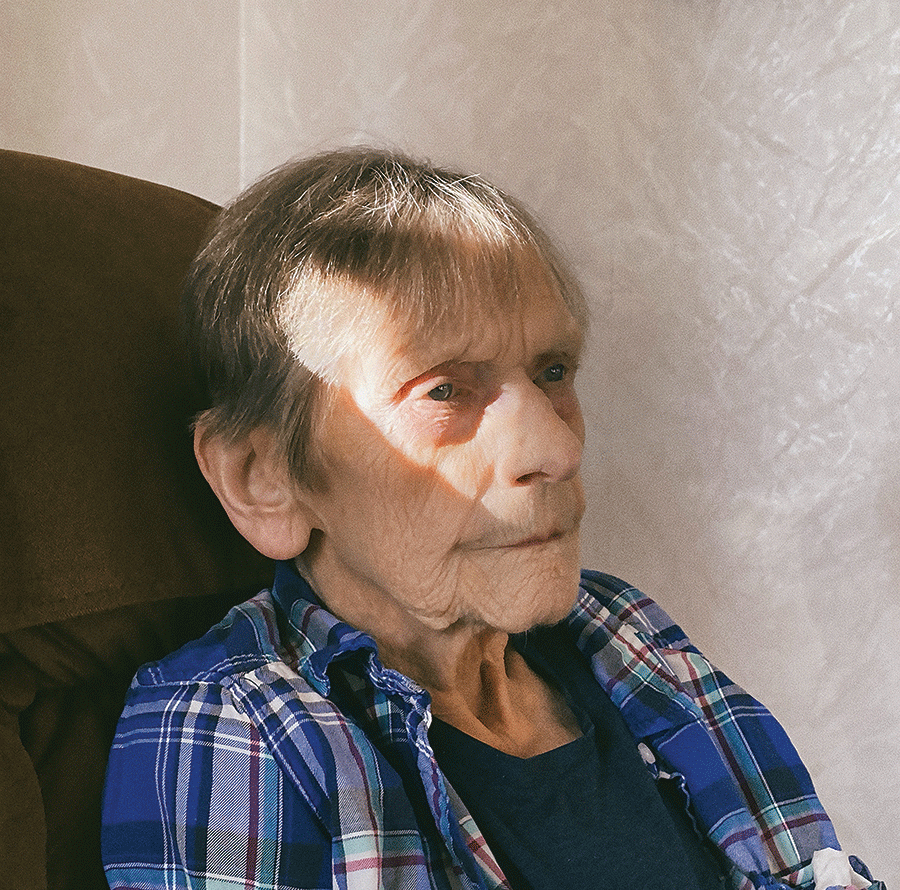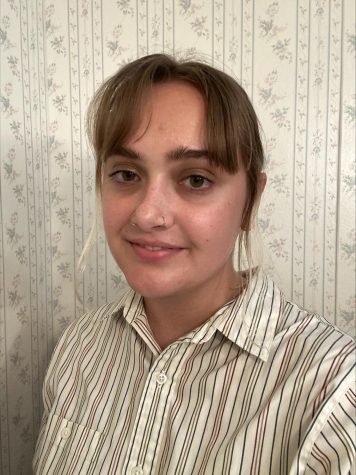Remembering Joan
Joan Donhaue
Joan Donahue was born in January of 1932, the youngest of thirteen children. Her parents owned a farm in Graniteville, a section of Barre Town located near the E.L. Smith Quarry. Although at this time the granite boom was slowing down due to the country facing depression, Joan always said her family never suffered much then. Joan’s father worked in granite quarries, and her mother ran the house, cooking, cleaning, and aiding with farm work. This was a job Joan would eventually take over in her late teens due to her mother’s cancer and eventual death when she was only 21 years old. She had wanted to walk out the door that day, never to go back, but she stayed until she married my grandfather in 1956.
Joan lived to be almost 91 and still held her wit with force into her later years. Her bluntness and occasional-yet-accurate depiction of her target’s blunder, kept the family laughing. It was her own critique, and I would say she had lived long enough to give it. Her memory, a vast cavern of personal stories from her adolescence and town lore of days gone, kept the legacy of her lost loved ones alive, and carried her audience further with how much detail she could recall. She was a hardened woman in her later years, but had an easy laugh that made her company comfortable.
I spent a great deal of time with my grandmother throughout my life. She was a frequent caretaker of me and my younger siblings. In my teenage years I would walk up to her house almost every day after school. There was a sense of serenity that held me close whenever I arrived at her house, a pause where I felt the embrace of every entrance I had ever made. I would make my way to the living room: my sanctuary. A place for birthdays, holidays, and many family gatherings. Really, on any given day, she always had a visitor or two.
The room itself was wrapped in white wallpaper, with a silk-like appearance that glistened when sunlight hit. Four walls faced each other; two doors, two windows, framed with a solid oak border. One window revealed the front yard, where the maple tree had begun to grow over the front porch. The other window on the right side of the room overlooked the neighbor’s yard.
Pocket doors were kept in the walls, opening the house up into the adjacent rooms. In the afternoons, perhaps around 4:30, a slant of light would emerge from the shadows that lingered as the sun went down crisp and golden, creating an almost melancholy-like atmosphere for my younger years.
The brown-fabric couch had blankets piled high, and is where my grandmother’s dog, a white and auburn coated Japanese-Chin named Molly, spent her days dozing. The old recliner, worn and creased with age, sat next to the couch. Between both seats was a small iron lamp with a cream-colored canvas shade. Heat vents covered by cast iron sat in various corners, as old houses often have such things. The television was usually off, unless it was time for “Jeopardy!” or “Wheel of Fortune.”
Without overhead lighting, the room always glowed with the yellowed light from the three lamps next to each respected sitting area after hours. Joan’s chair was a much newer recliner, that faced the front window where the cardinals, blue jays, and chickadees would often stop for a snack. Two bird feeders were hung from a rusted shepherd’s hook on the lawn, posing as houses for all the critters. Her side table was filled with her everyday objects: a landline phone, glasses, pens, crossword books, an assortment of medications, and always a glass of water.
My grandmother’s eyes, a radiant blue that had paled over the years, were always wide with excitement as she would wake from a nap, and would greet me with her usual quips and casual banter: “Take it easy,” was her catchphrase.
Jokes about my severe procrastination were plenty. Sometimes the words between us were known before we even said them, we had always gotten each other like that, a certain glint in the eye that acknowledged we were on the same level of understanding.
A memory the two of us shared is one of my earliest. She had been putting on lipstick, peering into the antique mirror in the dining room, and I, not even two-years-old, was watching her from the living room. She was watching me in the mirror, unknown to me at the time.
Now I wonder if I will see her in the mirror again when I, myself, am older.
The last conversation I had with my grandmother was a few days before she passed. She had been placed on hospice, but she had had her wits about her, and was as lively as she could be. As I was getting ready to head home that night, we said our goodbyes as we always did, a few chuckles, an “until tomorrow,” with a kiss placed on her forehead. But this time I held back, as she looked at me teary eyed and said, “If I don’t see you again, I want you to have a good life and get a good job.” I reassured her I would be back in the morning and that I would see her then. But she knew she was seeing me for the last time, she had known she was dying.
My grandmother died on January eighth; in the home she had inhabited for fifty years. My eyes had been resting on the digital clock on the TV stand reading 1:49 P.M. when my dad suddenly exclaimed, “I think she’s passed.” The clock read 1:50 P.M. She had been surrounded by myself, my dad, my sister and brother, and my aunt, her daughter, who fiercely cared for her until the end, and made sure she was able to stay comfortable in her own home. We stood at her side, not sure where to go from there.
As I held her hand, I noticed how even our thumbs were identical.








Sandy Harris • Apr 28, 2023 at 3:55 pm
How beautifully written! Such a loving tribute to someone special. I feel honored to share the writer’s memories.